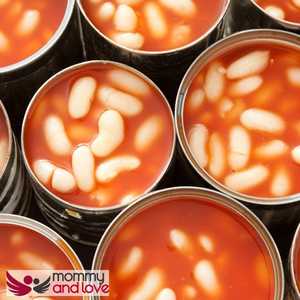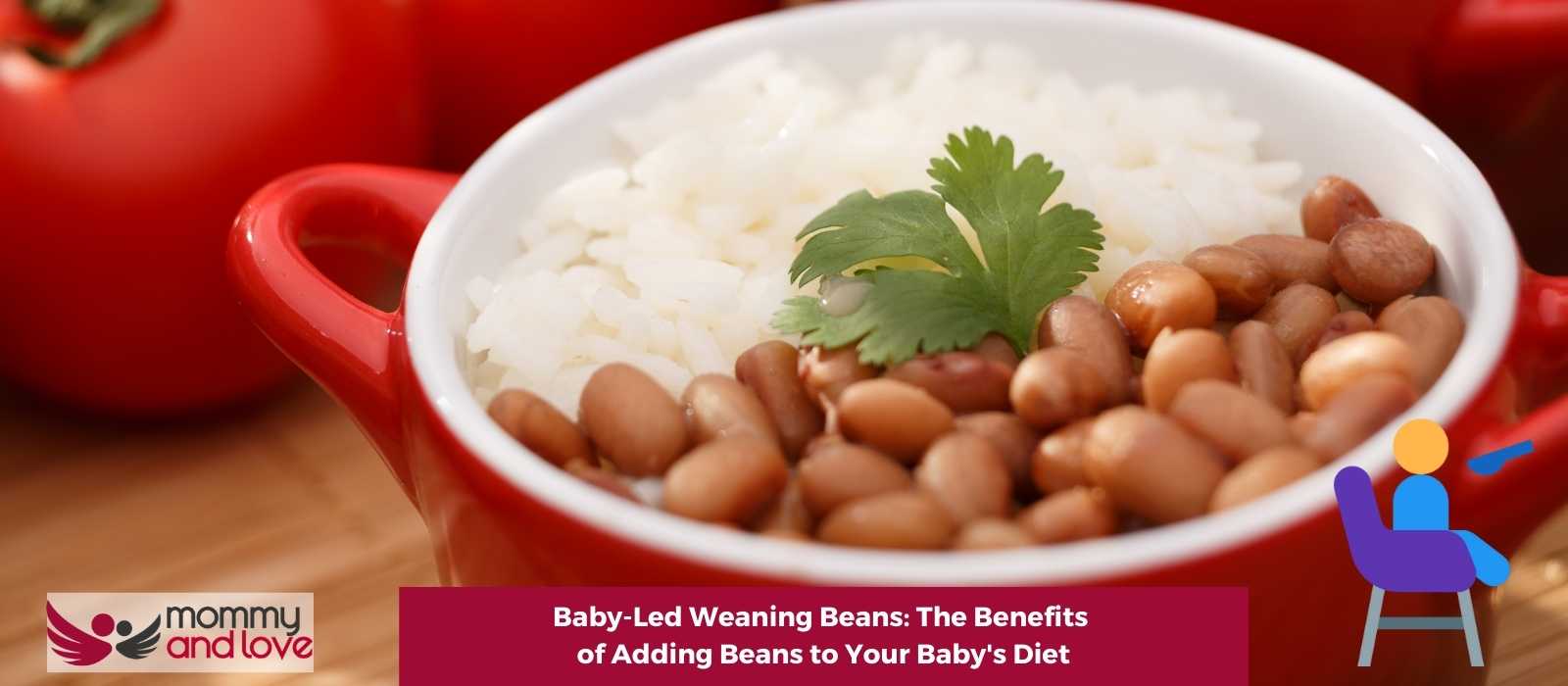If you’re looking for a way to add more protein and fiber to your baby’s diet, look no further than beans! Beans are a great food for babies who are starting to wean. They are high in both protein and fiber, and they are also low in sugar.
In this blog post, we will discuss the benefits of adding beans to your child’s diet, as well as some tips on how to introduce them. Let’s get started!
Are Beans Healthy for Babies?
Yes, beans are healthy for babies! In fact, they are many health benefits to eating them because they are a great source of nutrition. Beans are high in protein and fiber, and they are also low in sugar. This makes them a perfect food for baby’s who are trying to wean.
Protein is essential for a baby’s growth and development. It helps to build strong muscles and bones, and it also helps the body to repair itself. Fiber is important for a baby’s digestion. It helps to keep things moving along smoothly, and it can also help to prevent constipation.
Cooked beans are also a good source of iron. This is important for babies because iron helps to carry oxygen in the blood. It is essential for growth and development, and it can also help to prevent anemia.
So, as you can see, beans are a great food for babies who are starting to wean. They are packed full of nutrients that are essential for a baby’s growth and development.
When Can Babies Eat Beans?

Often, when infants are young, they have a difficult time eating foods like beans. These can be choking hazards for younger babies and can cause them to choke.
While there is no specific age at which it is safe for most babies to eat beans, it is recommended that you wait until your baby is between 7 and 8 months old before you introduce any type of bean in her diet.
At this age, young babies are ready to eat solid food such as whole beans.
Introducing solids such as beans to your baby early on has many benefits. And depending on your baby’s age, they might be ready to eat different kinds of beans.
How Do I Introduce Beans to My Baby?
Now that we know that beans are healthy first foods for little kids, let’s talk about how to introduce them.
The best way to introduce beans to your baby is by adding them to other foods that they are already eating. For example, if your baby is eating pureed vegetables, you can add a few spoonfuls of beans to the mix.
You can also add beans to soups and stews. This is a great way to get your baby used to the texture and taste of beans.
Finally, you can also offer beans as finger foods. This is a great option for infants who are starting to eat solid foods. Simply cook the beans until they are soft, and then cut them into small pieces. Your baby can then pick up the pieces and eat them with their hands.
So, there are a few different ways that you can introduce black beans to your baby. Just remember to go slowly and let your baby get used to the new food before increasing the amount that you give them.
Note that beans can cause an allergic reaction in infants and adults alike. So be careful and stop feeding your child if it causes a reaction.
Can Babies Eat Black Beans?
Yes! Black beans are an excellent source of nutrition for infants and toddlers. They are a good source of protein, fiber, iron, and folate. Black beans can be added to your child’s diet in a variety of ways. You can mash dried black beans into a puree or add them to soups or stews. You can also cook black beans into a soft consistency and use them as finger food for baby-led weaning.
Are Black Beans a Common Choking Hazard?
No, black beans for babies are not a common choking hazard but they can be especially during self-feeding. Don’t worry though. There are a few different ways that you can prepare black beans to prevent choking in babies. One way is to cook the black beans until they are soft. You can also mash the black beans up before adding them to your baby’s food. Another option is to purchase black bean puree from the store.
Can Babies Eat Canned Beans?

Canned beans are a great option for busy parents who want to add beans to their children’s diets.
They are quick and easy to prepare, and they offer the same nutritional benefits as fresh or dried beans.
When choosing canned beans, look for brands that have no salt added or are low-sodium and sugar. Excess sodium is bad for your child. You can also rinse the beans before cooking them to reduce the sodium content even further. Canned black beans can be added to soups, stews, or purees. They can also be served as food for baby-led weaning.
What Other Types of Beans Can Babies Eat?
There are a variety of dry beans that are safe for new eaters to eat. Some other options include:
Garbanzo Beans
Also known as chickpeas, these dry beans are a good source of protein, fiber, and iron. They can be mashed into a puree or added to soups and stews.
Kidney Beans
They are a type of common bean that is named for their shape, which resembles a kidney. They are often used in chili and other savory dishes. These beans are an excellent source of protein, fiber, vitamins, and minerals.
Navy beans (or white beans) are an excellent source of protein and fiber for babies. They are also a good source of iron, potassium, and magnesium. They are a low-glycemic food, which means they do not cause spikes in blood sugar levels. This makes them an ideal food for babies with diabetes or other blood sugar disorders.
Pinto Beans
Pinto beans are a type of common bean that is named for their color, which is a mix of red and brown. They are often used in Mexican dishes such as chili and burritos.
Lima Beans
Lima beans are a great source of nutrition. They are high in fiber and protein and low in fat. They for babies are also a good source of iron, calcium, and vitamins A, C, and K.
These beans are a great way to get your baby started on solid foods. They are easy to digest and are a healthy option for your baby. They are also good for self-feeding.
Cannellini Beans
Cannellini beans are a type of white bean that is popular in Italian cuisine. They are typically used in soups and salads, but can also be enjoyed as a stand-alone dish. They are a good source of protein and fiber and are low in fat. If you’re looking for a healthy and delicious way to add more beans to your diet, these beans are a great option.
How to Prepare Beans for Your Baby-Led Weaning
Introducing beans for babies should be a good option for baby-led weaning. They are soft and easy to chew, making them a perfect finger food for your baby. You can cook beans in a variety of ways, depending on your preference. You can boil them, bake them, or even Pressure Cook Them.
If you’re boiling beans, be sure to cook them until they are soft. If you want to mash or puree them, you can use a blender or food processor and add some breast milk and a little bit of olive oil to make them taste delicious. Or leave them whole for your baby to self-feed. If you’re baking beans, you can add them to casseroles or other dishes.
You can also serve beans for babies along with other foods such as sweet potato, biscuits and veggies.
Pressure cooking beans is a quick and easy way to cook them. Simply add the beans and water to the pot and cook under pressure for a few minutes.
No matter what bean recipes you want to cook or how you choose to prepare beans for your baby, be sure to cook them thoroughly. This will help to prevent foodborne illness.
Also, avoid adding salt, other seasonings and acids such as lemon juice to the beans until your baby is older. Babies’ kidneys are not able to process salt as well as adults, so it is best to avoid it altogether.
Take Away
Beans are a great addition to your child’s diet. They are packed with nutrients and are a healthy, low-glycemic food option. Beans are easy to prepare and can be added to a variety of dishes such as sweet potato, carrots and other veggies. Start with a small amount and increase as your baby gets used to the new food. If you have any concerns, speak to your healthcare provider for professional medical advice. They can offer guidance on how to safely introduce beans to your baby.

This article was written by Sandra Baker – full time writer and the mother of four amazing kids (including twins!)
She’s also a breastfeeding counselor and has spent years helping new parents learn how to care for their children. When she’s not writing or caring for her children, Sandra likes to spend time reading and taking walks with her husband.




